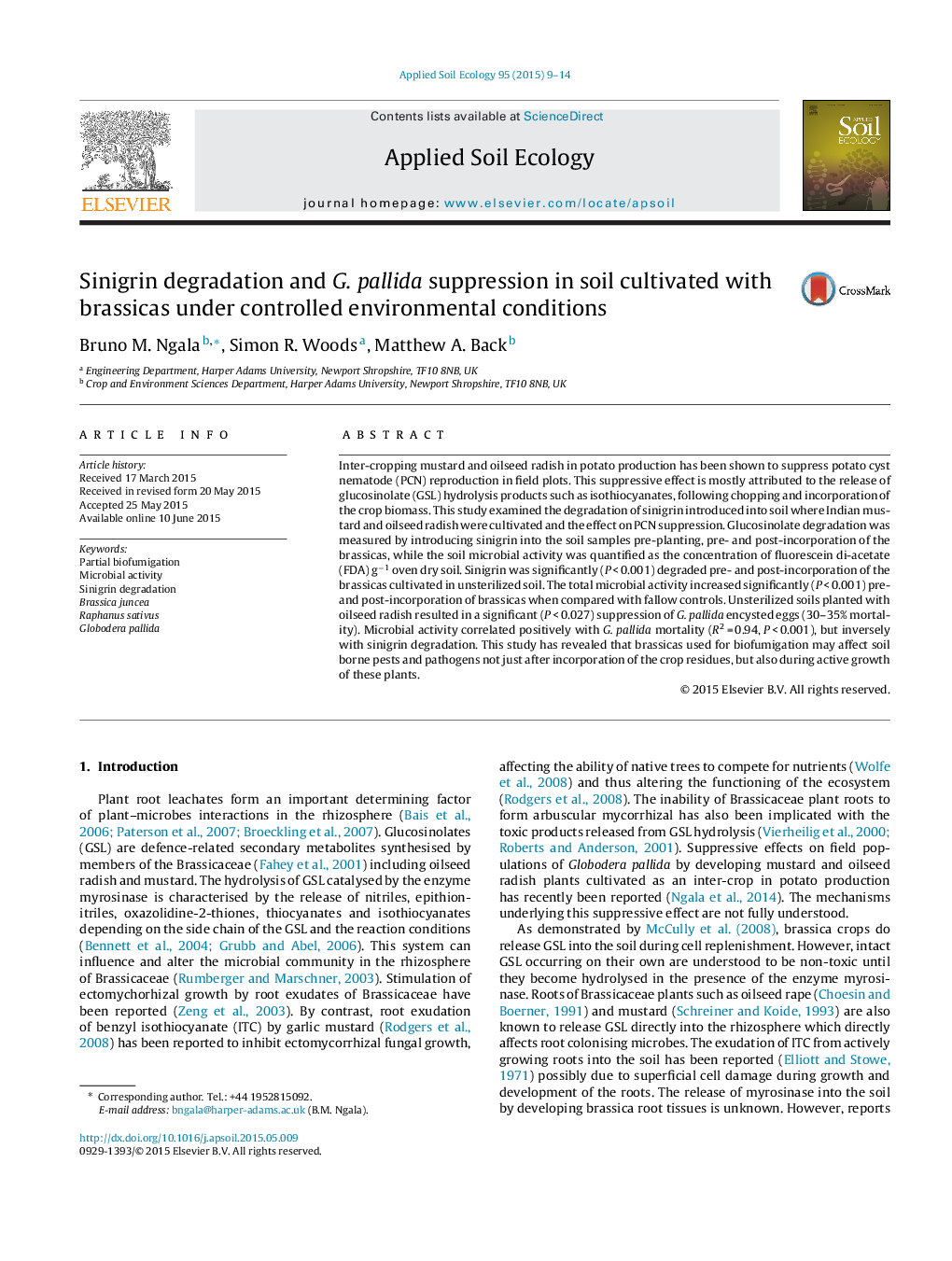| کد مقاله | کد نشریه | سال انتشار | مقاله انگلیسی | نسخه تمام متن |
|---|---|---|---|---|
| 4381931 | 1617788 | 2015 | 6 صفحه PDF | دانلود رایگان |

• The effect of actively growing brassicas on microbial activity and sinigrin degradation was studied under controlled conditions.
• Globodera pallida suppression was also monitored following active growth of brassicas.
• Sinigrin introduced into soil where brassicas were cultivated was rapidly degraded.
• Globodera pallida was significantly suppressed in soil where oilseed radish was cultivated.
• Soil microbial activity correlated positively with G. pallida suppression, but inversely with sinigrin degradation.
Inter-cropping mustard and oilseed radish in potato production has been shown to suppress potato cyst nematode (PCN) reproduction in field plots. This suppressive effect is mostly attributed to the release of glucosinolate (GSL) hydrolysis products such as isothiocyanates, following chopping and incorporation of the crop biomass. This study examined the degradation of sinigrin introduced into soil where Indian mustard and oilseed radish were cultivated and the effect on PCN suppression. Glucosinolate degradation was measured by introducing sinigrin into the soil samples pre-planting, pre- and post-incorporation of the brassicas, while the soil microbial activity was quantified as the concentration of fluorescein di-acetate (FDA) g−1 oven dry soil. Sinigrin was significantly (P < 0.001) degraded pre- and post-incorporation of the brassicas cultivated in unsterilized soil. The total microbial activity increased significantly (P < 0.001) pre- and post-incorporation of brassicas when compared with fallow controls. Unsterilized soils planted with oilseed radish resulted in a significant (P < 0.027) suppression of G. pallida encysted eggs (30–35% mortality). Microbial activity correlated positively with G. pallida mortality (R2 = 0.94, P < 0.001), but inversely with sinigrin degradation. This study has revealed that brassicas used for biofumigation may affect soil borne pests and pathogens not just after incorporation of the crop residues, but also during active growth of these plants.
Journal: Applied Soil Ecology - Volume 95, November 2015, Pages 9–14